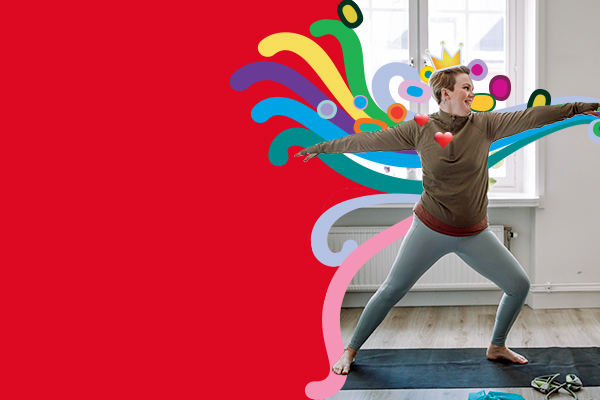-
For many young men, talking about mental health can be hard. And for those who care about them and may be concerned, knowing how to help can be just as difficult.
Dr Andrea Fogarty, a Research Fellow at the Black Dog Institute, shares a few insights on how to best support the young men in your life.
What are some of the barriers that prevent young men from seeking help for mental health issues?
There are several barriers which make young men less likely to seek help. For example, young men may not always recognise that what they are experiencing is a mental health problem. Everyone has off days, or feels stressed, or annoyed. It’s easy to think of these moments as one-off incidences, rather than seeing them as part of a larger pattern over time.
Even when they recognise there is a problem, young men are affected by the stigma associated with needing help for a mental health problem.
Some young men are also affected by ideas about what it means to “be a man”. In Australia, the culture has inadvertently taught young men that they should not be vulnerable and that they should be more than capable of solving their own problems – rather than ask someone else for help.
More generally, young men see doctors for their health less frequently than young women, and when they do see a doctor, their mental health problems may not be recognised.
"For young men, signs of depression can be different to what you might expect in a young woman. Young men may be more likely to become more angry, aggressive, or reactive, compared to young women."
What are some signs of poor mental health in young men to keep an eye out for?
The key thing to look out for is a change in what is usual for that individual. Most disorders can impact on many aspects of life, including moods, behaviour, energy levels, and sleeping or eating patterns. But so too can adolescence! A quick rule of thumb is to watch out for big changes in how someone usually behaves, and if it lasts for longer than usual.
Also, for young men, signs of depression can be different to what you might expect in a young woman. Young men may be more likely to become more angry, aggressive, or reactive, compared to young women, who are generally more likely to express sadness, fear and/or worry.
This is also partly due to socialisation – young women are encouraged to attend to their feelings and give them a definitive label, whereas young men aren’t always. This leads to different ways of coping with emotions and young men are more likely to experience alcohol or substance use problems.
It’s socially acceptable for young men to drink alcohol, which might be a standard way of dealing with stress at the end of a day – but can turn into over-use or over-reliance on these strategies when problems intensify.
"What we know from research is that young men prefer to talk to their family and friends first, rather than seek professional services."
If you're concerned about a young man in your life, how should you approach the situation?
Unfortunately, there is no magic bullet for this, otherwise we would be doing much better for our young men already.
What we know from research is that young men prefer to talk to their family and friends first, rather than seek professional services. So, never be afraid to check in and voice your concerns if you have them. Simply asking how they are is a great first step – and secondly, be prepared for what you might hear!
They may tell you everything is fine. In that case, you can continue to keep checking in, letting them know you care, and being specific about what you have noticed seems different about them.
Alternatively, they might tell you that things are not OK and you need to be prepared for that too. We advise planning what you would say or do next. Typically, it helps if you can listen to what they are saying and ask them what they need, rather than jumping straight into offering solutions.
Ask what they think would be of most help – do they want you to find resources for them, do they want your help making an appointment with a GP, for example? Would they be interested in learning about some of the online and anonymous places they can get help? The Black Dog Institute website can be a great resource, with guides to help start these conversations in a safe and constructive way.
In general though, if possible, the best place to start can be with a GP, who can help gauge the severity of the issue and point most people in the right direction.
What we know from research with adult men is that they valued being checked in on time and again. Even when they were pushing their support network away, they still wanted to hear that somebody cared, and were glad when people persevered.
Support is most likely to be accepted when it’s non-judgemental and emphasises connection and belonging – that the young man is part of a larger network that cares how he is doing.
For more information and resources about young men’s mental health, visit the Black Dog Institute.
How should you talk to young men about mental health?

-
How to set up your bedroom for better sleep
The sleep experts share some secrets.
-
5 healthy habits (and how to keep them)
New Year's resolutions are easy to make and hard to keep. Discover how to make healthy habits for 2024.
-
How to feel more connected this festive season
Feeling stressed or lonely this festive season?
-
Life’s a beach
If you want to take it easy at the beach, start by making the trip easier on yourself. Cameron Williams reveals the discoveries that made his time at the beach more enjoyable.
-
Learn how small bursts of movement can have a positive impact on employee wellbeing
-
How to do a digital detox
Reduce screen time with a digital detox, and improve your mental health and wellbeing.
Subscribe to receive the best from Live Better every week. Healthy recipes, exercise tips and activities, offers and promotions – everything to help you eat, move and feel better.
By clicking sign up I understand and agree to Medibank's privacy policy






